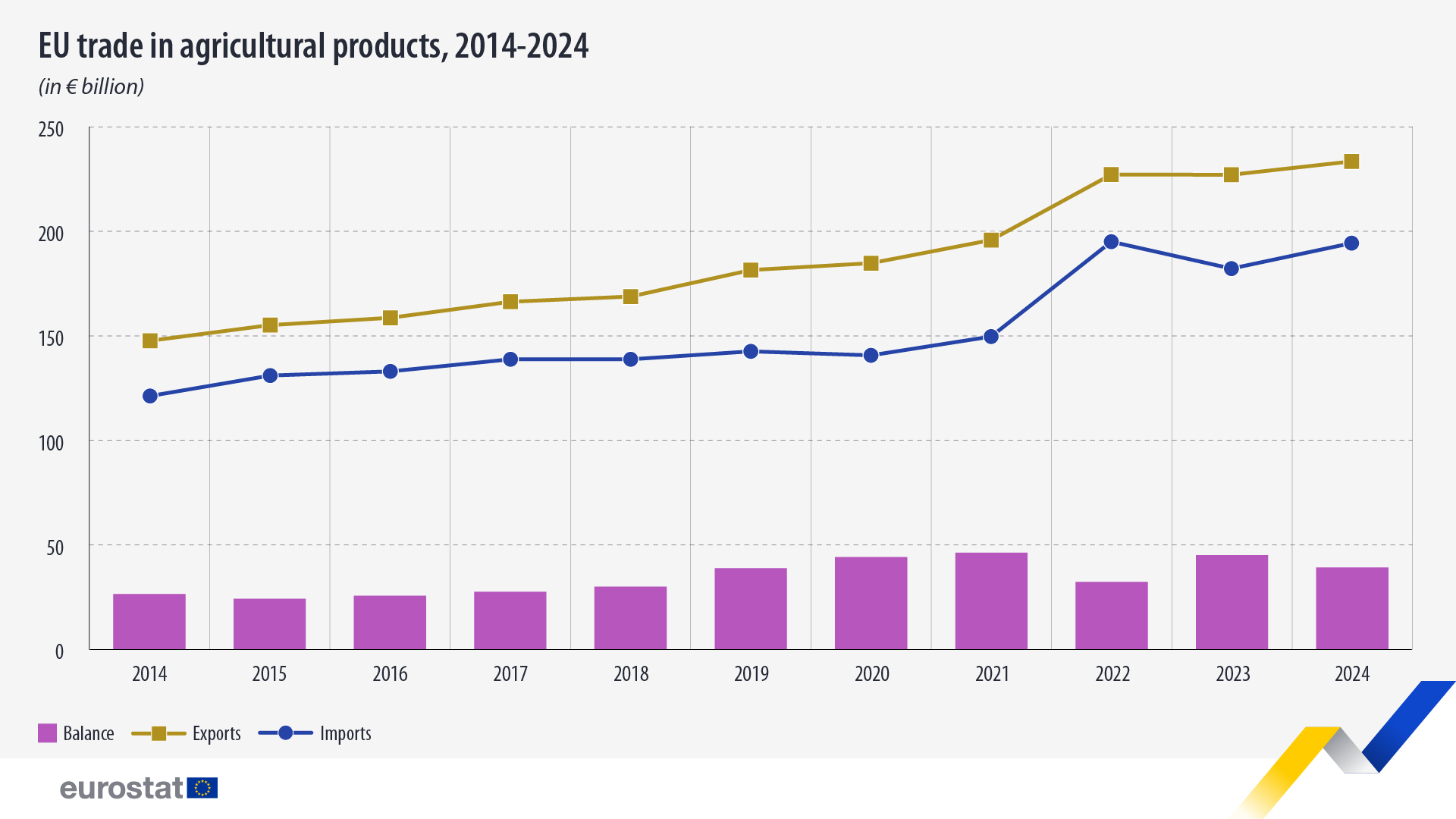Trade in agricultural products: €39.2 billion surplus

In 2024, the EU exported €234.1 billion worth of agricultural products and imported €194.9 billion, generating a €39.2 billion surplus. Compared with 2023, both exports and imports registered year-on-year increases of 2.8% and 6.7%, respectively.
Between 2014 and 2024, EU trade in agricultural products grew by 59.0%, with exports rising by 58.0% and imports by 60.2%, equivalent to an average annual growth of 4.7% for exports and 4.8% for imports.
Source dataset: ds-045409
The United Kingdom: main trade partner
The United Kingdom was the main partner for exports of agricultural goods in 2024 with a 23.0% share (€54.0 billion), followed by the United States (12.8%; €30.1 billion), Switzerland (5.4%; €12.6 billion) and China (5.3%; 12.3 billion).
Most of the EU imports originated from Brazil (8.8%, €17.1 billion), the United Kingdom (8.5%; €16.6 billion), Ukraine (6.7%; 13.1 billion) and the United States (6.1%; 12.0 billion).
Source dataset: ds-045409
For more information
- Statistics Explained article on extra-EU trade in agricultural goods
- Thematic section on international trade of goods
- Database on international trade of goods
Methodological notes
- In this news article, agricultural products relate to 4 major groups: animal products (World Customs Organization Harmonized System (HS) chapters 1-5), vegetable products (HS chapters 6-14), animal or vegetable oils, fats and related products (HS chapter 15) and foodstuffs, beverages and tobacco (HS chapters 16-24).
- As of January 2021 onwards, data on trade with the United Kingdom is based on a mixed concept. In application of the Withdrawal Agreement Protocol on Ireland/Northern Ireland, for trade with Northern Ireland the statistical concepts applicable are the same as those for trade between EU countries, while for trade with the United Kingdom (excluding Northern Ireland) the same statistical concepts are applicable as for trade with any other extra-EU partner country. For these reasons, data on trade with the United Kingdom are not fully comparable with data on trade with other extra-EU trade partners, and for reference periods before and after the end of 2020.
For information on upcoming releases, please consult our release calendar. If you have any queries, please visit our contact us page.


